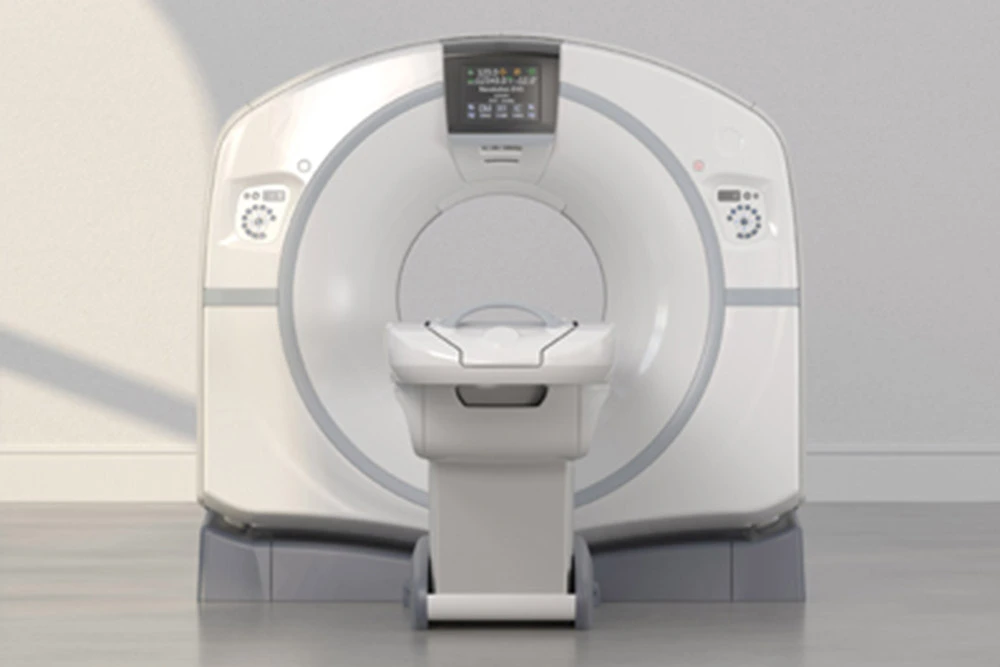What Is a CT Scan?
Computed tomography, more commonly called a cat scan or CT scan, is a diagnostic test that uses a series of computerized views taken from different angles to create detailed internal pictures of your body. A computer collects the pictures and puts them in sequence for your doctor.
Compared with traditional X-rays, CT scans create two-dimensional, cross-sectional images that provide more information. Many times, a CT scan is ordered by a doctor after noticing something abnormal in an X-ray. Although the CT scan cannot give a definitive diagnosis, it is helpful in the evaluation of lung diseases and conditions such as pneumonia, cancer, blood clots or damage caused by smoking.
What to Expect?
A CT technician will instruct you to lie flat on the CT scan table, which moves quickly through a donut-shaped device called a scanner. You will be asked to remain still and hold your breath for a few seconds. While this may seem similar to an MRI, it's slightly different in that a CT scanner is open and less noisy, and the CT scan takes much less time.
Depending on where on your body the scan is being done, you may need to remove some of your clothing and wear a gown, and take off your glasses, and any metal objects. If you think you might be pregnant, make sure to tell your doctor and technician.
If your CT scan is ordered with contrast, you will receive an intravenous (IV) injection, during which you may feel a temporary warm feeling throughout your body. You may be given specific instructions prior to the scan that include not eating or drinking anything at least two hours prior to your contrast scan and also alert your doctor or technician if you have kidney issues and/or allergies to medications or food, particularly iodine.
I Had My Scan; Now What?
After your CT scan, you are able to return to your regular activities. Make a plan to meet with your doctor to discuss the results, which are typically ready within a few days. Your doctor will review the report and images, and discuss and recommend next steps, if any. You may need to repeat the CT scan within a specific time frame; however, it is possible you will be asked to go for additional testing or a procedure such as a biopsy. You can always ask for a copy of your CT scan images for your own records.
What Are the Risks?
A CT scan is a fast test, and the open equipment is easier for individuals with claustrophobia. The most significant risk of CT scans is radiation exposure. Discuss this with your doctor, but the small risks of this radiation are offset by the benefit of the information obtained by the scan.
If your doctor ordered a CT scan with contrast, alert your doctor and technician if you have an allergy to iodine or IV contrast because you may need to take medications before the scan. This type of CT scan can affect your kidney function, so your doctor will check a blood test prior to scheduling the test.
Page last updated: November 20, 2024


